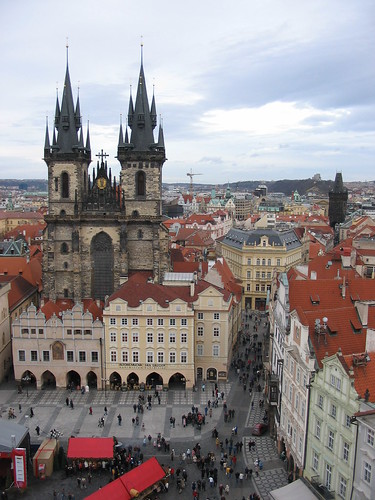 Conventional wisdom states that the Czech Republic is the least religious society in the West. At The Guardian, Dana Hamplová discusses the historical origins of the Czechs’ famed secularity, which reach back before Communism, and highlights the abiding forms of religious activity in the former Soviet satellite:
Conventional wisdom states that the Czech Republic is the least religious society in the West. At The Guardian, Dana Hamplová discusses the historical origins of the Czechs’ famed secularity, which reach back before Communism, and highlights the abiding forms of religious activity in the former Soviet satellite:
It is often argued that the Czech Republic is one of the most secular countries in the world. This claim is usually based on the sociological surveys and census data which show that only a small proportion of Czechs goes regularly to church and that most of the Czech Republic’s population does not report even a formal affiliation to any church
However, the idea that Czechs are almost completely indifferent to any religion is not accurate. The apparent lack of interest in traditional forms of Christianity is accompanied by the massive popularity of what sociologists call “invisible” or “alternative” religion and what could be best described as a belief in magic. Czechs may not be very enthusiastic churchgoers but many of them easily accept the idea that fortune-tellers can predict the future, lucky charms bring good fortune or that the stars might influence their lives. Moreover, claims about Czech non-religiosity are also complicated by the growth of charismatic and evangelical movements in recent years. Even though the total number of evangelicals and charismatics is small, some of these denominations have multiplied their membership several times in the 10 years between the last two censuses.
Read the full article here.












